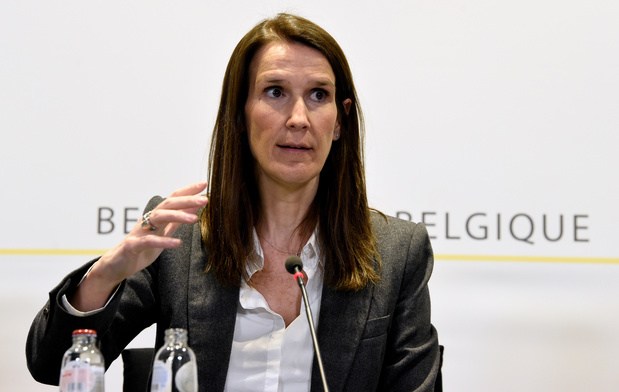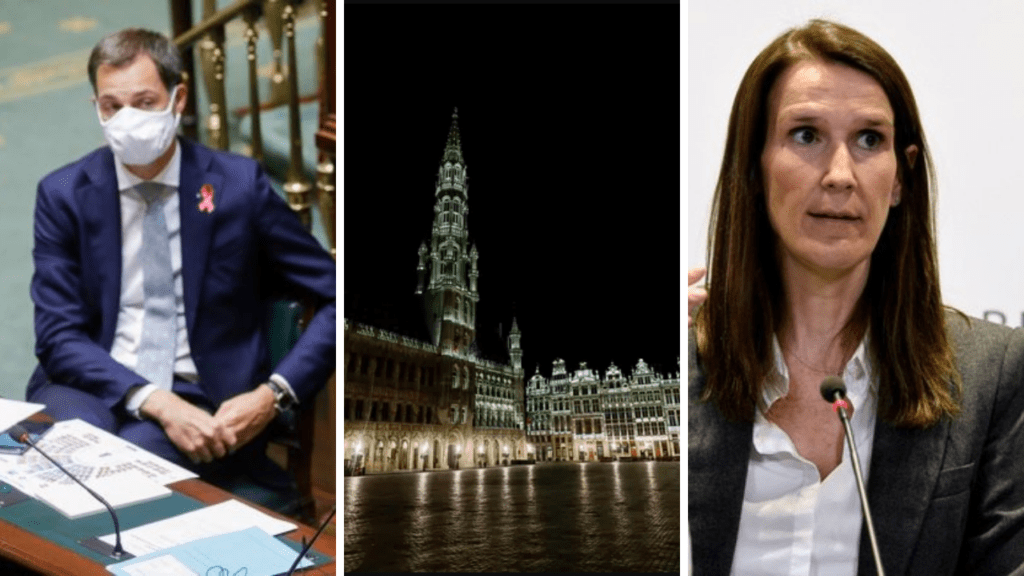It has been less than a week since Belgium introduced new measures to stop the spread of the coronavirus, but even stricter rules could be announced as early as tomorrow, as the country's Consultative Committee is set to meet again.
Faced with mounting pressure to tighten rules further, the agenda is expected to cover the sports, culture and events sectors in particular.
However, as the infection figures and especially the number of patients in hospital and intensive care units continue to rise strongly, several experts have spoken up about the possibility of introducing a lockdown after all.
“We must no longer ask ourselves what we should close. We must ask ourselves what to leave open,” microbiologist and former Sciensano spokesperson Emmanuel André said. “Today, we have to talk about reconfinement. It is the only tool we have left.”
Another prominent expert, Marc Van Ranst, said on Thursday morning that "a short strict lockdown" of about four weeks would be better than a longer "semi-lock-down period that will eventually exhaust and frustrate everyone, and will have both a higher health cost and a higher socio-economic cost."
So, while we wait, here's what's happening in the meantime.
Belgium in Brief is a free daily roundup of the top stories to get you through your lunch break conversations. To receive it straight to your inbox every day, sign up below:
1. Belgium’s Consultative Committee will meet again on Friday
Belgium’s Consultative Committee, which has replaced the previous government’s National Security Council, will meet again on Friday, less than a week after the strict measures implemented by the committee went into force.
Faced with mounting pressure to tighten rules further, the agenda is expected to cover sport, culture and events. Belgian media has also pointed to mounting pressure from the francophone side of the country to further tighten the new rules. Read more.
2. Belgian foreign minister Wilmès in intensive care for Covid-19

Foreign Affairs Minister Sophie Wilmès has been admitted into the intensive care unit following her infection with the new coronavirus last week.
Wilmès, who took over Belgium’s premiership and steered the country through the first wave of the pandemic, was admitted into the ICU on Wednesday night, according to one of her spokespersons. Read more.
3. Lockdown is the only option Belgium has left, expert warns
A second lockdown is the only option Belgium has left to stop the country’s rapidly rising Covid-19 infection figures and hospitalisations, according to a former Sciensano official.
“We must no longer ask ourselves what we should close. We must ask ourselves what to leave open,” microbiologist and former Sciensano spokesperson Emmanuel André told RTBF on Wednesday. “Today, we have to talk about reconfinement. It is the only tool we have left.”
Belgium is “heading straight to the wall,” with “only a little bit of space left to make societal choices” about which businesses can stay open and which cannot. Read more.
4. Only 1 EU area remains restriction-free for Belgian travellers

Only one area in Europe remains a green zone after Belgium’s Ministry of Foreign Affairs has once again adjusted its travel advice.
After the latest update, the Spanish island of La Palma is now the only area to which travel is possible without restrictions, and a Covid-19 test and quarantine are not mandatory upon return to Belgium. Read more.
5. Belgium approaches average of 10,000 coronavirus cases per day
An average of almost 10,000 people tested positive for the new coronavirus (Covid-19) per day over the past week in Belgium, as hospitalisations and deaths rise sharply, according to Sciensano’s latest figures on Thursday.
Between 12 and 18 October, an average of 9,692.6 new people tested positive per day, which is an increase of 75% compared to the week before. Read more.
6. Brussels new metro line is delayed by six months
Commuters in Brussels will have to wait further before a new metro line is rolled out after mobility officials said construction works were running six months late.
“We have calculated a delay of six months,” Regional Mobility Minister Elke Van den Brandt said, adding that they were aiming to have the metro line be operational by June 2025.
Van den Brandt said that the delay was due to several factors, including delayed permits, the complexity of the construction works and the coronavirus pandemic. Read more.
7. Belgium need not repatriate children of Syria fighters, says court
The Belgian state is not obliged to repatriate the children of Flemish Syria fighters, the Brussels court of appeal has ruled.
The ruling also overturned an order issued by a lower court for the government to pay damages of €5,000 per child for every day the repatriation was delayed.
The initial ruling dates back to December 2019, and concerns ten children then aged between six months and seven years, at the time staying in a refugee camp in northern Syria. Read more.
Maïthé Chini
The Brussels Times

